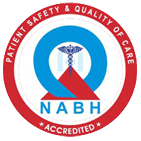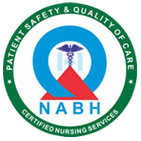FOLLOW THE MISSION HOSPITAL




Occasional heartburn is common and generally not serious. However, prolonged heartburn can be a symptom of a serious problem, such as esophagitis. Esophagitis is an inflammation of the lining of the esophagus, the food tube. Esophagitis occurs when stomach acid repeatedly comes into contact with the lining of the esophagus. If esophagitis is severe, the person can develop ulcers, bleeding and blood loss. Barrett's esophagus and even cancer can occur with long standing reflux and heartburn. This condition can also narrow the passageway from the esophagus to the stomach resulting in difficulties with swallowing. Your husband should consult his doctor for further evaluation. An endoscopy to visualize his esophagus may also be recommended.
Antacids neutralize excess stomach acid to relieve heartburn, sour stomach, acid indigestion and stomach upset. They are sometimes prescribed to help relieve the pain of stomach and duodenal ulcers. Some antacids also contain simethicone, an ingredient that helps eliminate excess gas.
You should take antacids exactly as directed by your doctor, or according to the manufacturer's directions. For stomach or duodenal ulcers, take the medicine for as long as your doctor tells you. If you are using the tablets, chew them well before swallowing for faster relief. Antacids rarely heal ulcers. They are mainly used for acid related symptoms.
Some antacids contain magnesium or sodium bicarbonate, ingredients that may have a laxative effect. Never take antacids if you have any symptoms of appendicitis or bowel inflammation. Serious side effects can occur with an overdose or overuse of antacids. Side effects include constipation, diarrhea, white or pale bowel movements and stomach cramps.
Products like Pepcid AC® are called histamine H2-blockers. These medicines in prescription form are used to block stomach acid; treat stomach or duodenal ulcers, erosive esophagitis, gastroesophageal reflux disease (GERD, by reducing the production of stomach acid. They may also be used for other conditions as determined by your doctor.
Pepcid AC® (famotidine, oral), Tagamet HB® (cimetidine, oral), Zantac 75® (ranitidine, oral), and Axid AR® (nizatidine, oral) are available without a prescription (over the counter). Like Pepcid AC®, these products are for relief of heartburn, acid indigestion, and sour stomach.
Your doctor may want you to take antacids when you start taking histamine blocker medications to control your symptoms until the medicine takes effect. If your doctor prescribes an antacid, take it an hour before or an hour after you take histamine blockers. Take histamine blocker medications regularly for as long as directed by your doctor, even if you do not have any pain or your symptoms improve. Take Axid AR®, Pepcid AC®, Tagamet HB®, and Zantac 75® according to the directions on the package, or as advised by your doctor.
Possible serious side effects that need to be reported to your doctor right away include confusion, chest tightness, bleeding, sore throat, fever, irregular heartbeat, weakness, and unusual fatigue. Other less serious side effects include headache, dizziness, and diarrhea, which are usually temporary and will likely go away on their own.

A Unit Of Durgapur Medical Centre Pvt. Ltd.